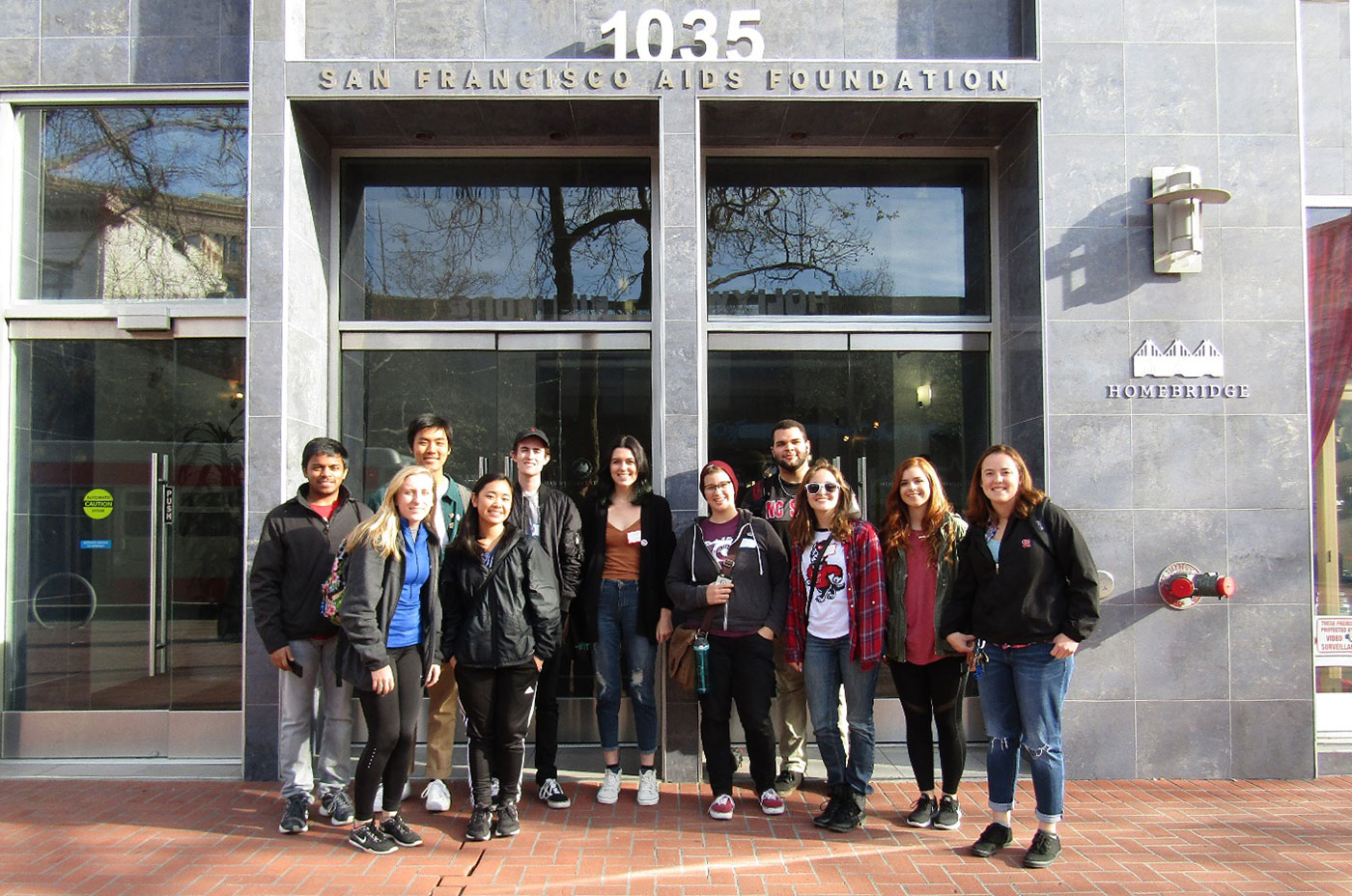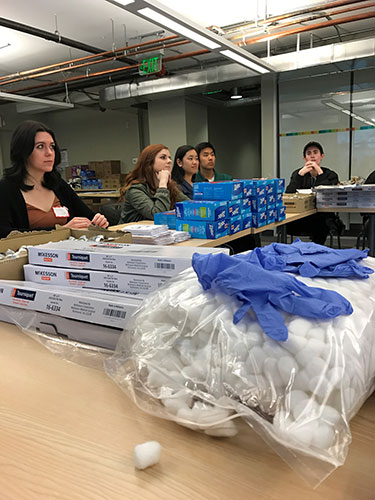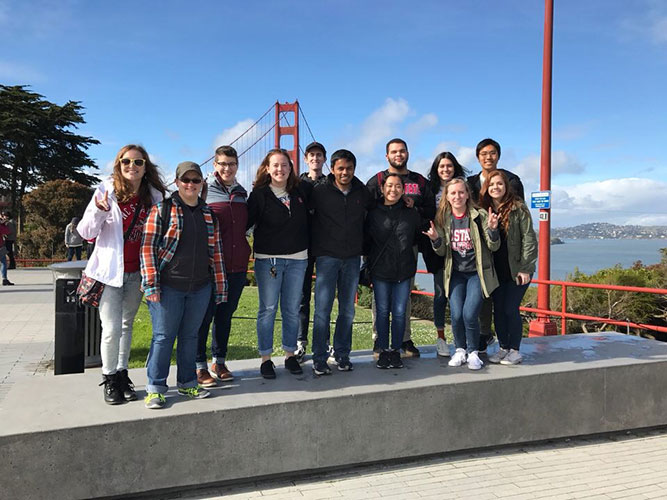ASB San Francisco: Intersectionality and Social Justice

The GLBT Center and the Center for Student Leadership, Ethics, and Public Service (CSLEPS) have established an Alternative Service Break (ASB) trip to San Francisco that gives students the opportunity to think critically about how identity and social justice are related.
Ready, Set, Go on an ASB Trip
From the moment they knew they were chosen for the San Francisco trip, team members started analyzing their own social position and privilege to prepare for the challenging conversations about intersecting social inequities they would be encountering in San Francisco. In addition to increasing their understanding and awareness of issues faced by GLBT individuals and their allies, students on the ASB San Francisco team also learned about social justice issues such as homelessness, drug use, incarceration, inadequate healthcare and interpersonal and community violence.
 Why Engage with These Issues on Spring Break?
Why Engage with These Issues on Spring Break?
ASB San Francisco students took this as an opportunity to learn about the history of the HIV/AIDS epidemic, grassroots activism and multi-strategy responses to social issues that meet people where they are, a hallmark of social justice work. Students began their spring break by watching The Times of Harvey Milk in preparation for visiting The Castro, San Francisco’s historic GLBT district. The Castro is home to the GLBT History Museum, which the team visited on their first day in the city. The GLBT History Museum showed the power of preserving individual and community history to later tell a story and relate current events to past challenges, like the violence faced by the GLBT community.
Life-Altering Challenges
Other service-learning sites, such as Swords to Plowshares and the San Francisco AIDS Foundation, showed the team how individuals facing life-altering challenges can find comprehensive support. At Swords to Plowshares, a veteran’s needs can be met at just one location, from transitional housing to issues with military discharge and benefits. The team also visited a major community partner, Project Open Hand, that provides nutritious meals for the elderly and chronically ill. Started during the HIV/AIDS epidemic by a single woman wanting to feed her friends healthy meals, Project Open Hand now relies on 14 locations across the Bay Area to prepare, serve and deliver meals to thousands of residents each day. Other major community agencies included the San Francisco AIDS Foundation, for which the team packaged safer injection kits for a mobile syringe exchange site, and the TGI Justice Project, where the team helped organize materials and resources for transgender people currently experiencing incarceration.
“When I learned about the problems faced by the queer community in prison, I realized that the system has been constructed in a way to oppress them.”
At all of these locations, the team encountered challenges to their current understanding of different social issues, such as the reasons that cause someone to be homeless, use drugs or end up in police custody.
“ the stigmatization of drug use and how a lack of access to understanding and caring support in the form of harm reduction can continue to perpetuate homelessness, death and the prison industrial complex.”
Each agency the team visited shared how their work relates to intersecting social justice issues, and the team came home with a new sense of how NC State, Raleigh and North Carolina can move forward to protect the most vulnerable communities who experience multiple types of oppression. At the end of the trip, students completed the sentence, “I will engage others in an active role to combat systems of oppression by…”
Here are their responses:
- “…taking advantage of service opportunities to help disenfranchised people, like needle exchanges.”
- “…passing my knowledge along and using the times when people make problematic comments as a chance to educate.”
- “…actively volunteering at the free needle exchange program on Hillsborough.”
- “…volunteering at organizations similar to the ones we visited and telling my friends to join me.”
- “…trying to challenge comments they may make or uninformed opinions they may hold.”
- “…getting more involved with organizations like the ones we’ve been involved with here.”
- “…starting conversations I previously would not have had the confidence to start. Now that I’m more versed in systems of oppression, I can share the things that I have learned with others.”
- “…starting a dialogue with others to recognize privilege and oppression within our community.”
- “…creating awareness among the international community.”
- “…challenging stigma of communities/identities and engaging in local community organizations.”

If you are interested in learning more about the different ASB trips, please see the Center for Leadership, Education and Public Service website.
Andy DeRoin is program coordinator in the GLBT Center.
- Categories:


